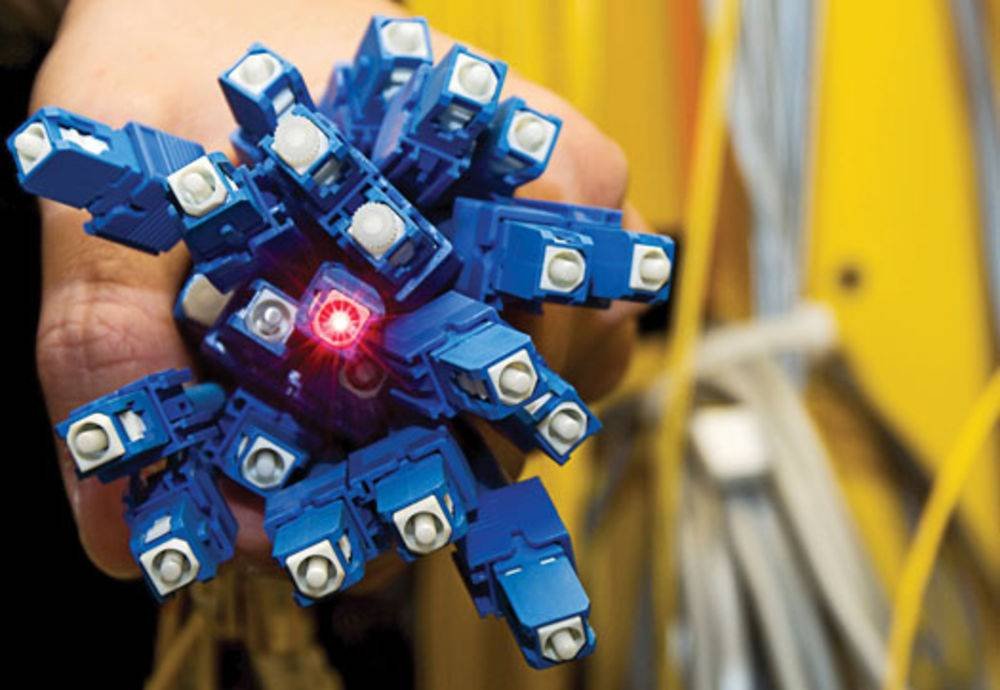Fiber optics has a wide range of applications. Fiber optic technology has already become very mature. Fiber optics now are an essential part of our everyday lives. It changes our daily life.
Optical fiber communication is mainly used in the telecommunication industry which uses the optical fiber for:
- Telephone Signals transmission.
- Internet Communication.
- Cable Television Signal transmission.
Apart from it, optical fiber nowadays, is used everywhere in homes, industries, offices for long distance as well as for small distance communication.
We take a look at some of the key reasons why a fibre optic network could be the best solution for you. Here are four major advantages of a fibre optic network:
Higher bandwidth faster speed
Optical fiber has a much higher bandwidth compared to traditional copper cables, which means it can carry more data over longer distances without losing signal quality. This makes it ideal for high-speed data transfer such as in telecommunications and the internet.
The amount of network bandwidth a fiber cable can carry easily exceeds that of a copper cable with similar thickness. Fiber cables rated at 10 Gbps, 40 Gbps and even 100 Gbps are standard. Since light can travel much longer distances down a fiber cable without losing its strength, it lessens the need for signal boosters.
No matter what new fiber-optic technologies make it to market in terms of transceivers or other electronics, the benefits of fiber include the fact that its performance isn’t limited by the cable itself. Instead, it’s limited by the electronic components that make up the system. Upgrade the components and your fiber cabling will be good to go.

Longer transmission distance
Optical fiber can transmit data over much longer distances than copper cables without suffering from signal degradation. This is because the light used to transmit the data through the fiber is not affected by electromagnetic interference, which can degrade the signal in copper cables.
A fiber optic cable is a low power loss medium, meaning you can achieve higher bandwidths over greater transmission distances. Fibre optic cables can reach 10’s of kilometers in distance compared to the maximum 100-metre distance that is the limit of copper cables.
Better Secure communication
Optical fiber is more secure than copper cables because it is much more difficult to tap into the signal without being detected. This is because the light signal used in optical fiber is not easily radiated or detected outside the fiber itself.
Fiber cables don’t emit signals; connecting taps to a fiber cable to intercept data transmission is incredibly difficult.
Because the signal traveling through a fiber cable is contained inside the individual fiber strand, it must be accessed from the end of the cable by cutting into it. In most cases, this would take the network down, and everyone would quickly become aware of the issue.
By the way, electricity isn’t involved with transferring data (data is transferred via light instead), the benefits of fiber include the fact that it’s safe to handle.

Greater Reliability
Optical fiber is more reliable than copper cables because it is not affected by environmental factors such as temperature, humidity, or electromagnetic interference. This means that data transmission is less likely to be disrupted due to weather changes or other external factors. Optical fibers are made of glass or plastic and are resistant to damage from physical stress, moisture, and temperature changes.
Fiber optic cable isn’t impacted by temperature changes, bad weather, or moisture. For example, if it comes into contact with rainwater, communication goes on as usual. If lightning strikes a fiber cable, the surge of electricity will not be propagated because the fiber cable doesn’t contain any metallic components.
It can withstand harsh environments without any changes in performance, making it ideal for rugged environments like outdoor, long-distance, and industrial applications.
Overall, optical fiber is a more useful tool for communication because it provides higher bandwidth, longer distance transmission, better security, and greater reliability than traditional copper cables.
Learn more about our range of fibre optic solutions here.

